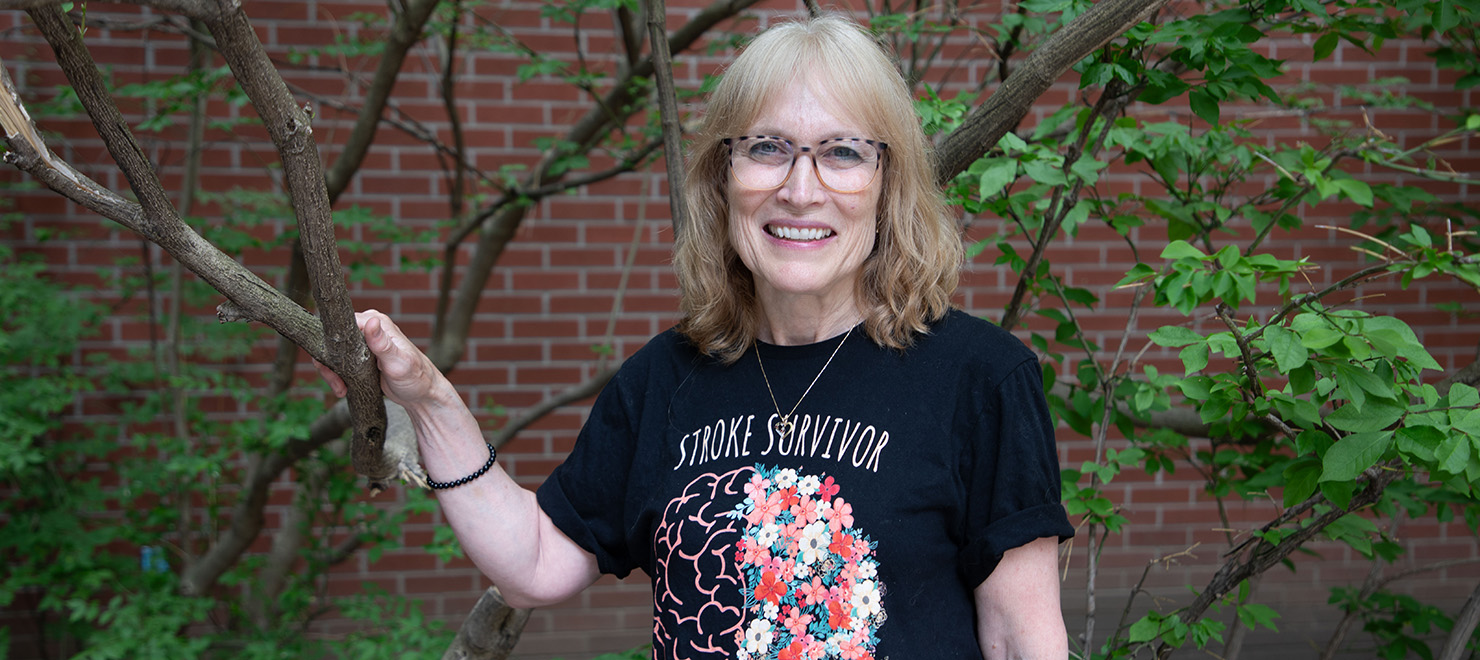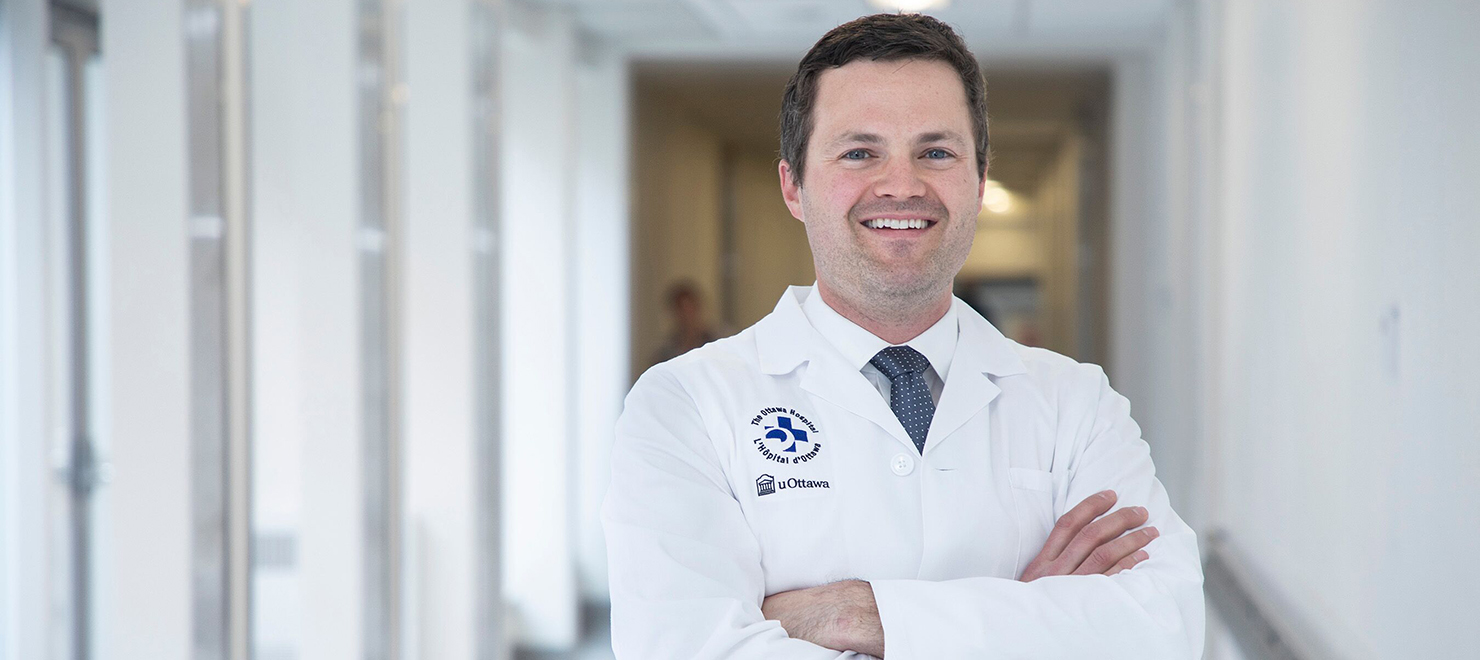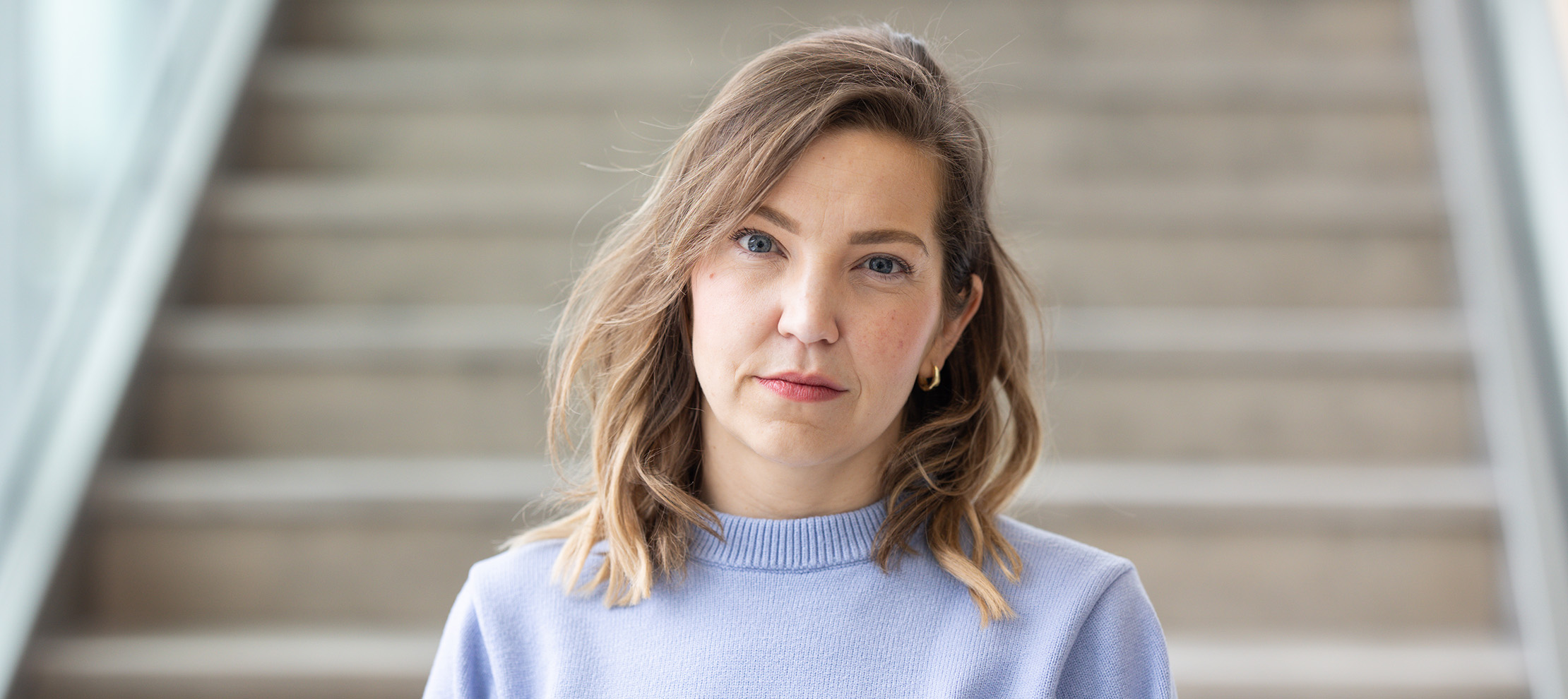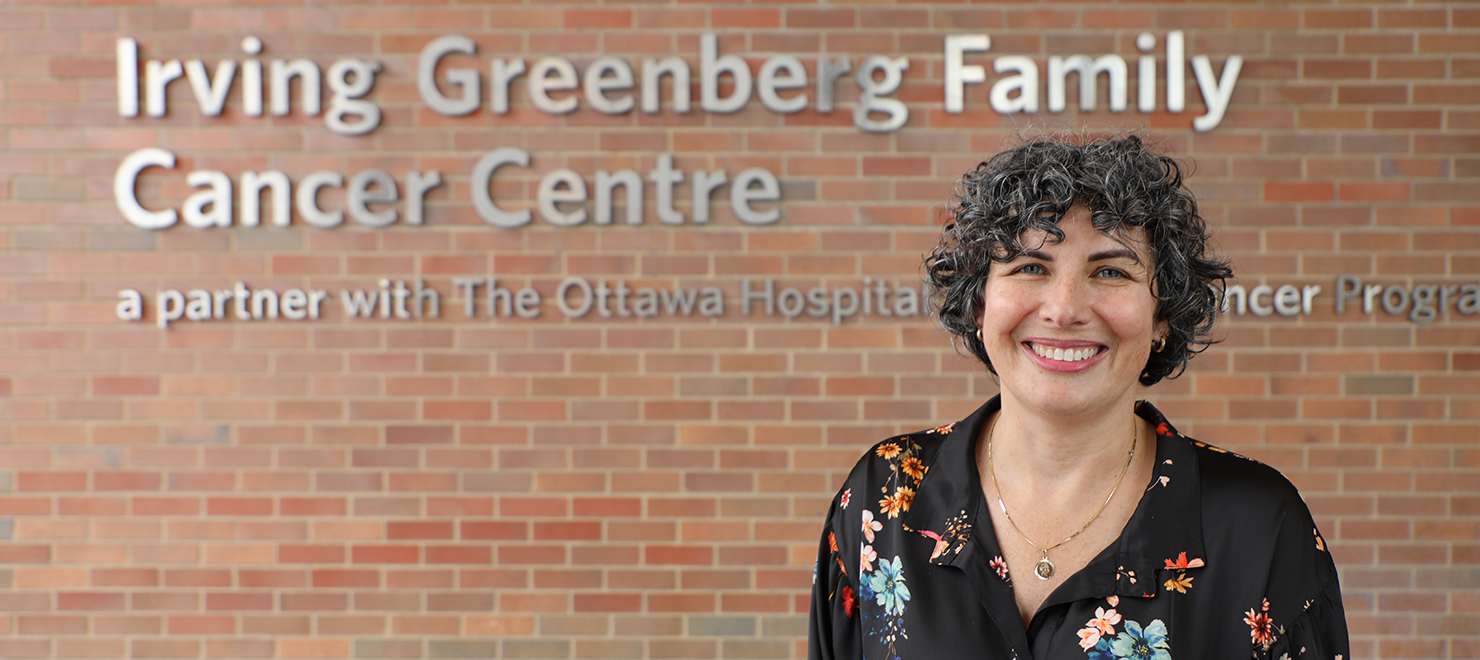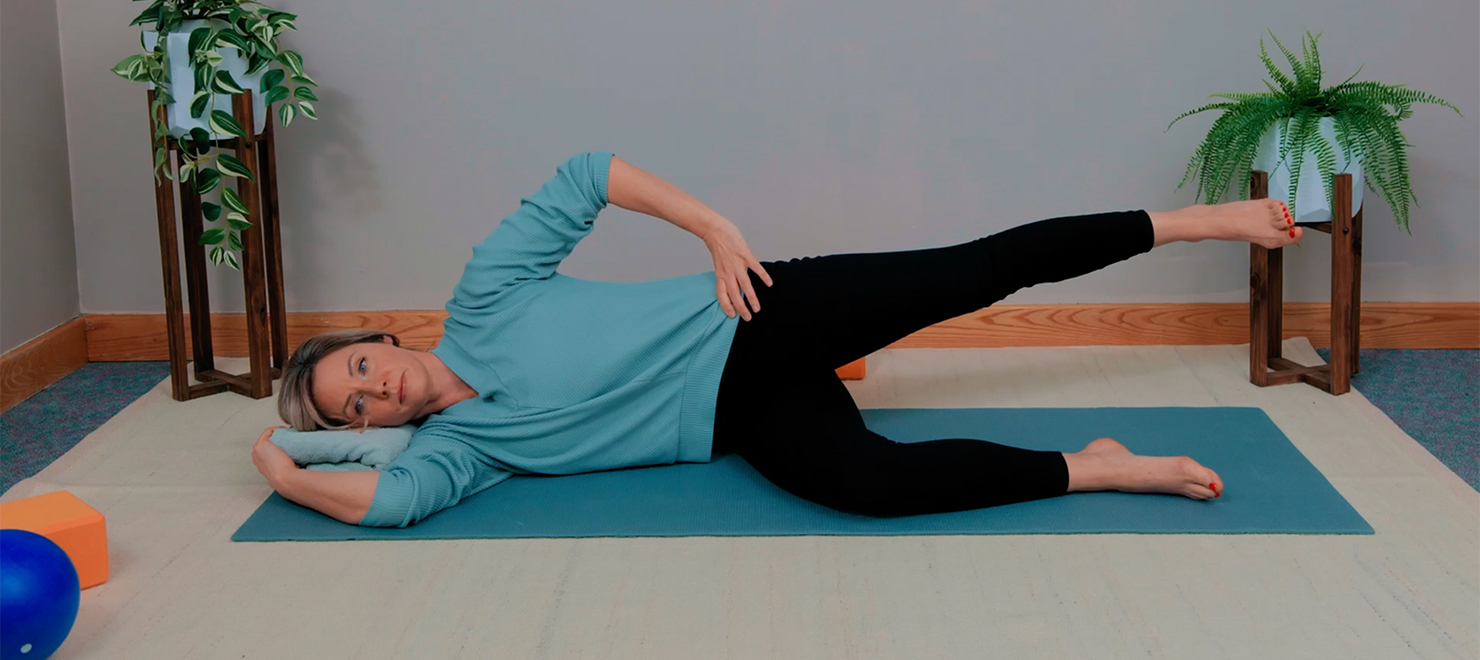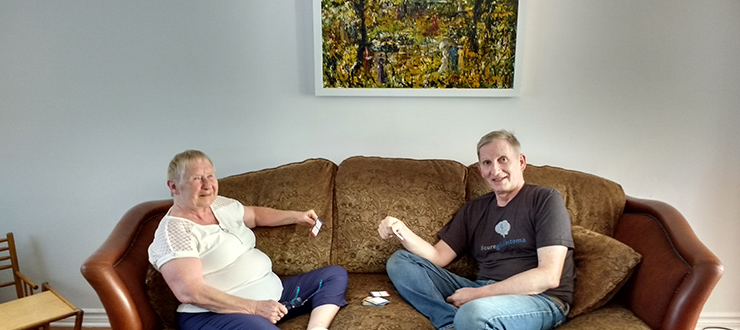
Susan Wulf, (left) called an ambulance after her husband, Ron Wulf suddenly froze while watching a movie. Ron was later diagnosed with a hemorrhagic stroke and eventually a brain tumour for which he underwent awake brain surgery.
Awake brain surgery was the farthest thing from Ron Wulf’s mind when he sat down with his wife, Susan to watch a German documentary in June 2019. Ron is a linguist, and proudly spoke multiple languages fluently. Little did he know that his unique talent would be both in danger of disappearing and a big part of his rehabilitation.
It all started when Susan looked over at Ron that night and noticed that something was very, very wrong.
Ron had stopped eating his dinner and stared at the television like a zombie.
It wasn’t like the former-intelligence-officer-turned-learning-professional to act this way.
“I was reading the subtitles, but they weren’t making sense,” Ron recalled. “I couldn’t understand any of the words.”
Ron started feeling queasy and was unable to move. Susan called an ambulance.
Ron was rushed to the Emergency Department at the Civic Campus of The Ottawa Hospital. There he was told that he had had a hemorrhagic stroke.
Waking from a stroke is a disorienting experience, but Ron reached for what he knew best: language.
“As soon as I started regaining consciousness, I got a pad of paper and started writing things down,” he said. “At first I couldn’t speak, and I couldn’t write either, but I could do a little of both.”
Ron found a certain comfort in being able to communicate, even in the most basic terms.
“Soon, I started logging everything for myself because I was kind of lost as to where I was,” he said.
Ron had expertise in cognition and perception, so he was in a unique position to observe his situation. He did his best to diligently write down everything that was happening to him, what he had done that day, and what changes he noticed in how he could use language. In a sense, he was documenting his own recovery.
“Losing the ability to move would have been traumatic, but not as traumatic as my ability to communicate.”
“I was trying to get lemonade out of lemons,” he said. “I think in a lot of ways, I’m a pretty rare research subject—with the ability to communicate and the background I’ve got. So I think I was able to pick up things that were happening to my brain that, unless you study linguistics and cognition, you wouldn’t figure out that it was important or interesting.”
When it was time for him to start formal rehabilitation from the stroke, Ron knew he wanted to focus on regaining his language skills. First English, then French, then the others.
Unfortunately, that wasn’t the end of his health challenges.
A month after his hemorrhagic stroke, Ron was readmitted to the hospital with a pulmonary edema (fluid filling his lungs) and a lung infection. He slowly recovered from that, but at the end of August, he had stroke-like symptoms again.
Susan took him back to the Civic Campus of The Ottawa Hospital, where an MRI confirmed that there was a tumour in Ron’s brain.
“When I had the stroke, I said ‘I want to learn from this.’”
Dr. Safraz Mohammed, a staff neurosurgeon at The Ottawa Hospital and Director of Undergraduate Education (Neurosurgery) at the University of Ottawa told him that the tumour was treatable, not curable.
“That diagnosis messed with me pretty bad psychologically,” Ron recalled. “Although Dr. Mohammed was absolutely brilliant in the way that he communicated that to me.”
Ron needed surgery, and fast.
So now Ron, who had been through a stroke, pulmonary edema and a lung infection, was now preparing for awake brain surgery.
“Dr. Mohammed looked at the location of the tumour and gave Ron a choice: if it came down to it, would Ron prefer that Dr. Mohammed prioritize Ron’s mobility or his speech?
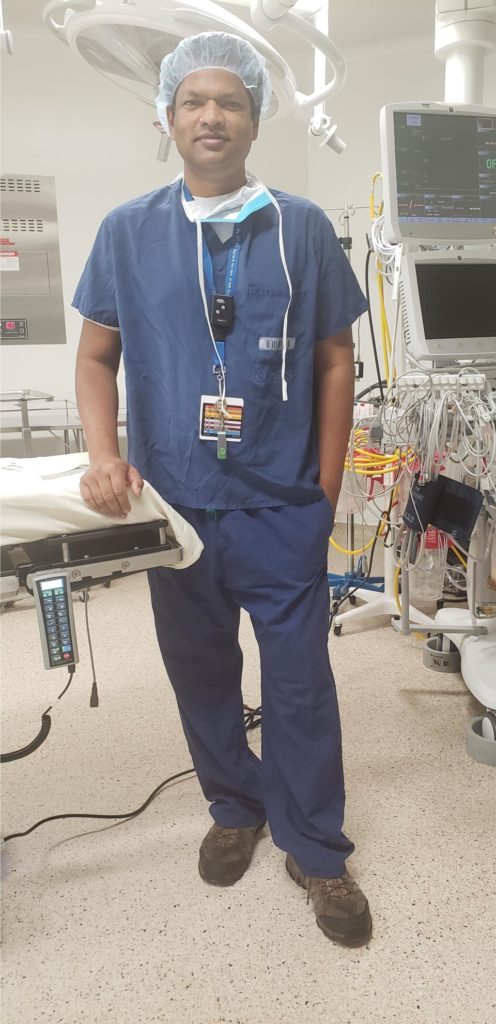
“I’m not a runner; I’m a linguist,” said Ron. “Losing the ability to move would have been traumatic, but not as traumatic as my ability to communicate.”
And being a linguist with so many different kinds of languages stored in his brain posed special challenges for the surgery team.
“Ron’s tumor was located in the area of the brain very close to the typical language centre,” said Dr. Mohammed. “The tumor was affecting his speech where he was having difficulty finding words. This is why an awake brain surgery was ideal for him.“
During the surgery, Dr. Mohammed showed Ron pictures and Ron was tasked with repeating what he saw in various languages.
“By using the special electrodes during the surgery, we were able to determine his English, French and Dutch language centers, each in a slightly different area. This allowed us to avoid those language centers and take out as much of the tumour as possible.”
“Dr. Mohammed sort of got that mapping of the brain to figure out where he could cut, and not affect my language, which is pretty amazing,” Ron said.
The surgeon went on to say that Ron’s diligence in his note taking and paying attention to his language skills in terms of how much language was lost also helped the team determine where different languages were stored in Ron’s brain.
Dr. Mohammed and his team removed a fairly large tumor from Ron’s left temporal lobe. For Dr. Mohammed, it was a unique experience.
“What are the odds of a guy like that, someone who knows so many languages, needing this surgery and having the tumour so close to his language centre? I had never seen this before and probably will never see it again,” he said.
Ron has undergone radiation treatment and chemotherapy, but recent test results indicate that the cancer has spread and a scan suggests that the swelling in his brain has increased. Although he is finding it more difficult to speak write and read, he is doing his best to continue enjoying his hobbies. He is working hard in his rehabilitation, and is thankful for the help he has received along the way.
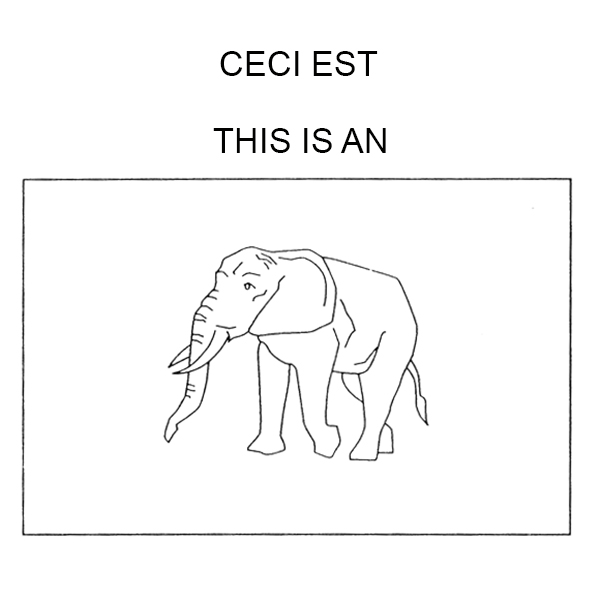
“We had an absolutely brilliant Nursing Lead in the NACU (Neurosciences Acute Care Unit),” he said. When you’ve got a patient that’s deceased or unconscious, you’ve then got another patient—and that’s the spouse or the family member that’s there… She looked after my wife and my daughter, who really didn’t know what to do, and guided them in how to deal with me. It worked really, really well.”
Ron is also thankful for his family, particularly his wife, Susan. Her training as a volunteer firefighter helped her give important information to the EMTs after his first stroke.
She also provided important information to Ron’s care team. After his stroke, staff thought he was speaking gibberish. But Susan recognized the patterns of speech and told the nurse that he was actually speaking English, French, German, and Russian all mixed together. This helped the medical team better assess his condition.
More than a year later, Ron continues his recovery. “Cognitively, things are improving, but not as quickly as the physical recovery,” he said. “I kind of expected that.”
As Ron’s recovery journey continues, he has turned his sights to using his experience to help educate the medical community.
“When I had the stroke, I said ‘I want to learn from this. There is such an opportunity to have learning on linguistics, language and stroke treatment that I can do and be involved in.’”
Ron gave a presentation for surgical residents in May of this year. He was a patient speaker at a stroke conference in September. He is also working with Jennifer Dale-Tam, a nurse educator at The Ottawa Hospital on a training module for surgical nurses. The module will focus on the importance of family support as part of the care team.
Ron feels that patients benefit greatly by the presence of loving friends and family around them as they recover, especially if they are disoriented as a result of anesthesia, stroke or other conditions.
Ron has been down a long road, and has a long way to go. Still, he enjoys the occasional night in, watching a foreign-language documentary.
Sadly, Ron Wulf passed away shortly after sharing his story. The Ottawa Hospital is grateful to him for allowing his story to help shape improved care for patients.

Support patient care and research at
The Ottawa Hospital
You might also like…
From survivor to supporter: Peer volunteers bring hope to patients recovering from stroke
Drawing on their own lived experiences as stroke survivors or caregivers, volunteers with March of Dimes Canada’s After Stroke Hospital Peer Connections program offer emotional support to those just beginning their recovery journey. Discover the difference they’re making and learn about how you can request support for a loved one — or become a beacon of hope yourself.
Do you have a surgery coming up? Here are five “prehab” tips to help you recover faster
You’ve probably heard about rehabilitation, but what about “prehabilitation”? Prehab is all about getting your body and mind in top shape before surgery so you can enjoy a smoother, quicker recovery. Discover five essential prehab strategies from researcher Dr. Daniel McIsaac.
“My story doesn’t have to be your story”: New screening test better at preventing cervical cancer
“I went from being a 32-year-old new mom to a cancer patient with an incurable diagnosis.” Alicia’s journey underscores the critical role of HPV testing in preventing cervical cancer. Discover how the new HPV test can save lives and find out how to book your cervical screening appointment with our “Superscreener.”
Sign language interpretation services at The Ottawa Hospital: 5 FAQs
Do you require a sign language interpreter when you come to The Ottawa Hospital? For patients who are Deaf or hard of hearing, we provide both American Sign Language (ASL) and Langue des Signes Québécoise (LSQ) interpretation services at no cost. Before your next appointment with us, find out everything you need to know.
By thinking differently, this research team is improving the lives of people with cancer
Taking a different approach to clinical trials, the REthinking Clinical Trials (REaCT) program aims to answer some of the most important and practical questions that affect both patients with cancer and our health-care system. Find out what sets REaCT apart and makes the program so special to participants like Beth.
A guide to mindful movement for pain management
Are you seeking relief from pain, discomfort or stress? In these four videos, Physiotherapist Cristin Kargus guides you through gentle, mindful movements to help you reconnect with your body.


 To reset, hold the Ctrl key, then press 0.
To reset, hold the Ctrl key, then press 0.
